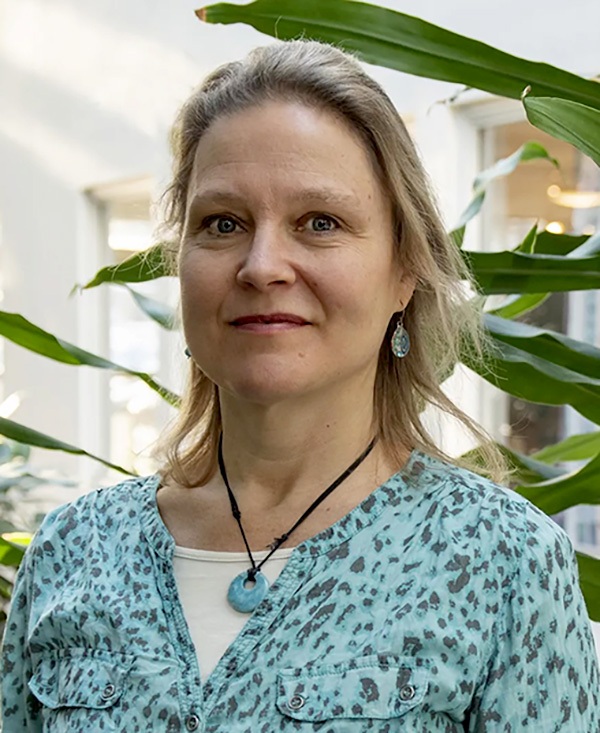Meet Cecilia Ramberg – Sustainability at system level
Throughout her career, Cecilia Ramberg has been driven by a clear vision: to create real change in industry to reduce the burden on the environment.
– What got me involved was a strong desire to change at the source of the problem, to reduce emissions by changing industry instead of regulating emissions once they exist, she explains.
Even as a child, Cecilia Ramberg was curious about how things were connected. She grew up with a strong sense of justice and a desire to change the world, something that has followed her throughout her life.
– I’ve always had an interest in systems and how they affect us. The more I learn, the more I realise how complex the issues are – and that just makes it even more exciting, she says.
However, it was not obvious that she would work with industry and sustainability. Her academic career began with engineering physics at Chalmers, but she also studied journalism – a combination that reflects her philosophical bent.
– I’m an engineer at heart, but also philosophically inclined. I like to think about systems and see the big picture. I’m often the one with my head in the clouds, so I like to work with people who are more down to earth – that’s when I work best.
Finding collaborations in new ways
For her, sustainability is not just about the environment, but also about social justice. She says the younger generations inspire her.
It feels very important to have contact with young people. My role is to pave the way for the next generation, to facilitate a faster transition. We must create new stories about where we are going.
As part of the research institute RISE, Cecilia has for many years had the opportunity to translate academic research into concrete benefits.
– It’s a fun challenge – academic research is crucial for creating fundamental new knowledge, but we’re here to put it into practice too.
Today, Cecilia works with Net Zero Industry, where she sees an important part of her role as creating broader collaborations to break the link between economic growth and increased resource use.
– If we are to change the way we create wealth, we need to collaborate in a new way. We need to think in terms of how we actually get to a higher systemic level where people can still use their expertise but change our consumption habits, she says.
“Dare to start, it’s fun!“
For decision-makers who want to start working sustainably, her advice is clear:
– Dare to start. It is fun! There is so much to gain from being part of this important shift. It doesn’t have to be immediate action – just think about what the first step is. Connect with others, there is a lot of expertise and many who want to collaborate. Dare to leave the quarterly economy and think long-term. We can do it – we are capable of it and we must do it. It is crucial for us to succeed in the great challenge we face.

coordinator Net Zero Industry
Four short questions.
If you weren’t doing what you do, what would you be doing?
Be a journalist or writer
What makes you switch off from work when you are free?
Long walks in nature
If you could choose one superpower, what would it be?
I would like to be able to play music and sing
What is the most unexpected thing that has happened to you during a working day?
The most unexpected things usually happen when we organise big conferences. All sorts of things can happen, but it usually works out.